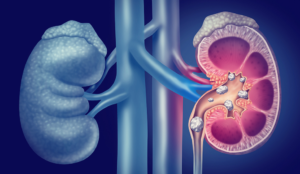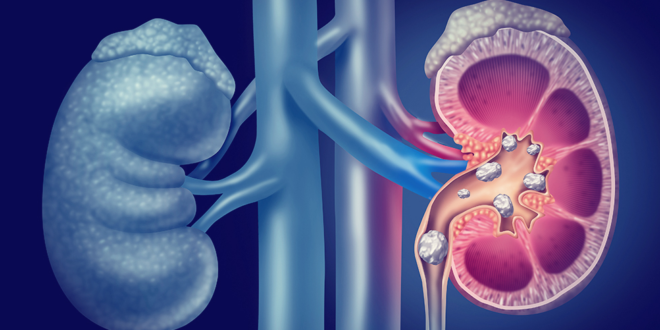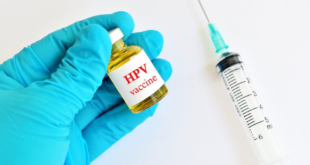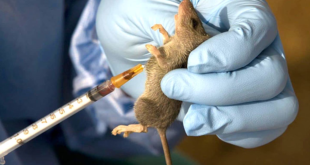
What are kidney stones?
The kidney is the body organ that clears waste products and fluids from our blood by converting them to urine. Unfortunately there might be times when we may have some of these waste products in our blood without enough fluid. Because of this low fluid volume the waste products can come together and stick up to form what is known as kidney stones. A popular constituent of kidney stones is calcium oxalate, although it can also be made up of several other compounds.
What Causes Kidney Stones?
Basically, lack of water in the body remains a major cause of kidney stone. Hence persons who do not drink enough water daily stand more chances of developing kidney stones than those who drink enough. It is recommended that as human beings we ought to drink about ten glasses of water daily. The body requires plenty water to properly dilute uric acid which is a component of urine. When there is insufficient water for this dilution, the urine becomes more acidic. As acidic urine increases the chances of the formation of kidney stones.
Other medical conditions that increase the risk of kidney stones includes: urinary tract infections, Chron’s disease, hyperparathyroidism, polycystic kidney disease and medullary sponge kidney. Also, taking of certain medicines such as diuretics (water pills) or calcium-based antacids, long-term use of vitamin D and calcium supplements can also increase the chances of developing kidney stones.
What are the Symptoms of Kidney Stones?
Usually a kidney stone is asymptomatic until it enter into the ureter. From that moment one may begin to notice one or more of the following symptoms: burning sensation while urinating, severe pain in the groin and abdomen, blood in the urine (hemouria), decreased volume of urine, persistent urge to urinate, vomiting and nausea. Assuming there is an infection one may also notice white blood cells or pus in the urine, fever and chills.
Diagnosis of Kidney Stones
There are different tests that help to confirm the presence of a kidney stone. Pain in the groin and around the kidneys during a physical examination could be a pointer towards kidney stones. These are often warning signs of the condition.
A urine analysis test can also tell if there is blood in urine. In the same vein, a urine culture can also reveal an infection, if present. Complete blood count (CBC) can also help reveal the broader picture of any accompanying complications and conditions.
Ultrasound and commuted tomography (CT) scan of the abdomen is another way of finding out the exact picture of things in the abdomen to confirm the presence of kidney stones. They will reveal the picture of the state of the bladder, ureter and kidneys. Because these are imaging tests, they are in a better position to tell us if or not there is kidney stone, it’s exact size, where it is located, and other relevant information.
Treatment of Kidney Stones
Most of the times, kidney stones may pass out on their own without leading to much long-term problems. However, when it doesn’t and becomes very painful a doctor can assist you in removing the crystals. Usually the choice of treatment will depend on the prevailing symptoms and the nature of the kidney stones.
Waiting for about 2 weeks while drinking enough water are preliminary things one can do which may be enough to resolve the kidney stones. The laboratory result revealing the nature of the stone can also help in suggesting the best medication that will be effective in solving the problem. Also, some over the counter pain relievers such as acetaminophen or ibuprofen can help ease discomfort while the stone takes some time to exit.
Prescription drugs such as calcium channel blockers and alpha-blockers can help relax the ureter and a wider ureter will help the stone move more quickly. Potassium citrate or sodium citrate can also help stop kidney stones created by uric acid from forming.
Finally, in occasions where the kidney stones are too big to come out by itself, there may be need to surgically break them up and remove them.
Prevention of Kidney Stones
One of the best ways to prevent kidney stones is to drink enough water and other fluids daily. Drinking about 10 cups of water daily is a good habit that can help prevent kidney stones and bring other health benefits also reducing the intake of sodium and animal proteins like red meats and eggs in your diet can also help in preventing kidney stones. In a case where there is an underlying health condition that increases the chances of you developing kidney stones, seek your doctor’s support to treat this condition. Also if your doctor discovers what your kidney stone is made of, he or she may be able to give you specific diet recommendations to help prevent future kidney stones. Before you start or stop any treatment or diet on this, kindly seek your doctor’s advice first.
Conclusion
One major reason why a kidney stone might develop is when you are not drinking enough water. Because that amounts to the production of little quantity of urine which gives more chances for the formation of kidney stones. The good news is that with the right foods, plenty of water, and proper medication when necessary we all can lower our chances of kidney stones and lead a healthy life.
 Healthveli
Healthveli




